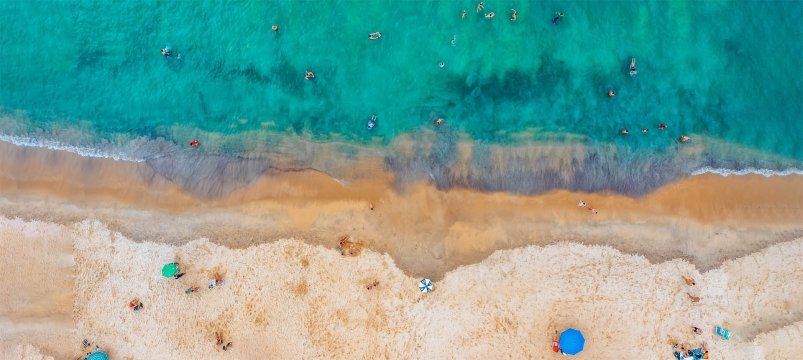Top Tips On How To Prevent The Damaging Effects Of The Sun This Summer

Summer is almost approaching, and we must learn how to properly care for ourselves before the July heat scorches our skin. Here, we'll show you how to protect yourself and your health from the sun's harmful rays.

Sunspots Treatment
Sunspots are caused by coming into contact with UV radiation. As a result of frequent sun exposure, they might grow gradually over time. You may also hear these patches referred to as age spots, liver spots, or solar lentigines. They are more frequent in adults over the age of 40, but they can occur at any age.
True solar spots aren't carcinogenic or damaging to your health in any way. When you get marks that look to be sunspots, though, you should see a dermatologist to ensure they aren't anything else. Your dermatologist can determine if your spots are an indication of a medical issue that requires treatment.
When it comes to topical remedies, there are several alternatives. Aloesin and aloin, which are found in aloe vera plants, have been shown in certain studies to help erase sunspots. Anything containing glycolic acid, hydroxy acid, kojic acid, hydroquinone, or deoxyarbutin in over-the-counter lotions may be beneficial. The only way to figure out what works best for you is to experiment with different creams. Make sure to use them on a regular basis for a few weeks before expecting to see effects. Also, removing sunspots when topical solutions aren't enough includes a proper sleep routine. The majority of your body's mending happens at night. Eating healthily also aids in the reduction of fresh sunspot formation. Skin health may be improved by consuming a lot of vitamin C and using healthy oils. Booze, fatty meats, and sugary meals should all be avoided. Finally, exercise is beneficial to skin health, and the sooner you begin, the better; nevertheless, it is never too late.
Applying Sunscreen
Spending time outside is beneficial to your health and can aid in the absorption of vitamin D. However, spending too much time in the sun without protection might be harmful to your health. Sunscreen reduces your exposure to ultraviolet (UV) light, lowering your risk of skin cancer, the most frequent cancer in the United States. Sunscreen contains several chemicals that block UV rays, allowing your skin to absorb less energy. Sunscreens made of chemicals absorb the sun's rays like a sponge. Avobenzone, oxybenzone, and octisalate are among the components. Physical sunscreens (also known as mineral sunscreens) operate as a barrier, reflecting the sun's rays. Zinc oxide and titanium dioxide are two of them.
If you do not use sunscreen you risk the following:
- The most frequent form of sunburn is first-degree sunburn, which causes your skin to turn bright pink or red. This form of sunburn is unpleasant and hot to the touch, although it normally disappears after a week.
- If you get a second-degree sunburn, you'll be in greater discomfort. This is when little blisters appear, which may become itchy or infectious. Because there is more damage, this sort of burn takes a little longer to heal.
- Burns of the third degree penetrate the dermis and impact deeper structures. They leave behind burnt, bleached, or blackened skin that may be numb.
- Fourth-degree burns are more severe than third-degree burns, and they can cause muscle and bone damage. Nerve endings are harmed or destroyed as well.
Wear Sunglasses to Protect Your Eyes
If you're like most people, you probably don't give your eyes much thought until you start having vision problems or pain, or discomfort in the area. Eye disorders, on the other hand, can have a significant impact on your quality of life. Preventing eye problems early in childhood is a great strategy to lower your risk of developing them later in life. Wearing sunglasses when spending time outside, especially during the summer months, is one of the simplest things you can do.
Sunglasses can help to protect your retina. The retina is your eyes' visual processor. UV rays can damage the retina over time, leading to a degenerative disorder called macular degeneration. Macular degeneration has no known remedy at this time, so use shades when you're outside to lower your chances of acquiring it. Sunglasses can help you avoid blindness by lowering your risk for a range of other illnesses. Your eyelids, for example, are so thin and exposed that they might be a target for skin cancer if you spend a lot of time outside. Skin cancer is not a confined disease, and if you're not vigilant, it may spread swiftly.

Stay Hydrated
It is simple to become dehydrated or overheat in extremely hot weather. You might have heat cramps, heat exhaustion, or even heatstroke if this happens. Heatstroke is a medical emergency that, if not treated promptly, can cause lasting damage to your essential organs or even death. Excessive heat might exacerbate pre-existing medical issues.
It's important to note that other liquids, such as soft drinks, coffee, or alcoholic beverages, are not a replacement for water. Although they include water, they also contain dehydrating substances. Sports drinks are good for exercising in hot conditions because they include carbs and electrolytes. Gastrolyte and Hydralyte are two examples of oral rehydration solutions. They should be prepared and given exactly as directed by the manufacturer. Drinking water before, during, and after exercise should be recommended in children, especially if the weather is hot.
Hopefully, these suggestions will assist you in protecting your skin from the sun's harmful rays this summer. Summer is a great time to enjoy the pleasant weather and feel the warmth of the sun, but remember to keep your health in mind and preserve it as much as possible.





